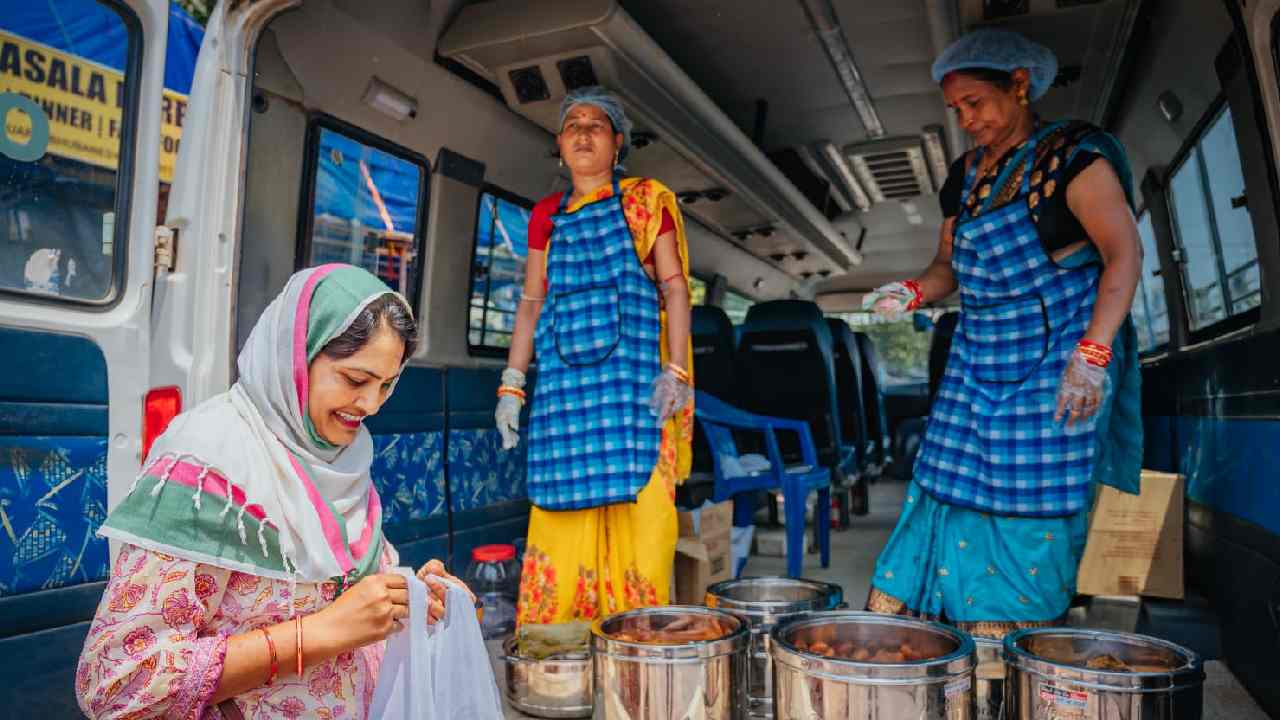The government has launched ‘Mission Shakti’—an integrated women empowerment programme as umbrella scheme for the safety, security, and empowerment of women for implementation during the 15th Finance Commission period of 202l-22 to 2025-26. The norms of ‘Mission Shakti’ will be applicable with effect from April 1.
‘Mission Shakti’ is a scheme in mission mode aimed at strengthening interventions for women safety, security and empowerment. It seeks to realise the Government’s commitment for “women-led development‟ by addressing issues affecting women on a lifecycle continuum basis and by making them equal partners in nation-building through convergence and citizen-ownership. The existing sub-schemes of Mahila Shakti Kendra (MSK) and Mahila Police Volunteers (MPV) have been discontinued.
Officials said that the scheme seeks to make women economically empowered, exercising free choice over their minds and bodies in an atmosphere free from violence and threat. It also seeks to reduce the care burden on women and increase female labour force participation by promoting skill development, capacity building, financial literacy, access to micro-credit etc.
‘Mission Shakti’ has two sub-schemes—‘Sambal’ and ‘Samarthya’. While the ‘Sambal’ sub-scheme is for safety and security of women, the “Samarthya” sub-scheme is for empowerment of women. The components of ‘Sambal’ sub-scheme consist of erstwhile schemes of One Stop Centre (OSC), Women Helpline (WHL), Beti Bachao Beti Padhao (BBBP) with a new component of Nari Adalats—women’s collectives to promote and facilitate alternative dispute resolution and gender justice in society and within families.
The components of ‘Samarthya’ sub-scheme consist of erstwhile schemes of Ujjwala, Swadhar Greh and Working Women Hostel have been included with modifications. In addition, the existing schemes of National Creche Scheme for children of working mothers and Pradhan Mantri Matru Vandana Yojana (PMMVY) under umbrella ICDS have now been included in Samarthya. A new component of Gap Funding for Economic Empowerment has also been added in the Samarthya Scheme.
‘Mission Shakti’ seeks to focus on proposing strategies for improving convergence across Ministries and Departments and at different levels of governance. It also seeks to promote greater participation and support of Panchayats and other local level governance bodies, apart from strengthening digital infrastructure support, last mile tracking and Jan Sahabhagita.
These guidelines have been developed to support stakeholders and agencies who would be involved in implementing the Scheme, as well as State, district and grassroots level functionaries. It is intended to serve as a reference manual for officials at the National, State, Union Territory (UT) and district and grass root levels for policy guidance and monitoring.
These guidelines list out the services to be provided under the scheme and steps and processes and procedures for implementation. These guidelines also highlight the roles and responsibilities of various line departments. It provides indicative monitoring and reporting formats to be used at different levels. The guidelines may be modified based on the feedback received from States/UTs from time to time, as per requirements, to ensure proper implementation.
The objective of the Mission Shakti is to provide to all women and girls including differently-abled, socially and economically marginalised and vulnerable groups, in need of care and protection, with short term and long-term services and information for their holistic development and empowerment.
The components under Mission Shakti have the broad objectives of either protecting or assisting women who are victims of violence or in difficult circumstances or for empowering women. The objectives of the Mission are to provide immediate and comprehensive continuum of care, support and assistance to women affected by violence and for those in distress, to put in place quality mechanisms for rescue, protection, and rehabilitation of women in need of assistance and victims of crime and violence and to improve accessibility to various government services available for women at various levels.
It also seeks to make people aware about government schemes and programmes as well as legal provisions to fight social evils like dowry, domestic violence, sexual harassment at workplace and to promote gender equality, besides capacity building and training of functionaries, duty bearers under various schemes and legislations, collaboration with partner Ministries, departments, States and UTs for convergence of policies, programmes, schemes and to create an enabling environment for public private partnership for safety and empowerment of women across sectors.
The mission will also create awareness among masses for inducing positive behavioural change towards women and girls and prevent gender-biased sex selective elimination to ensure survival, protection, education, and development of the girl child.


























